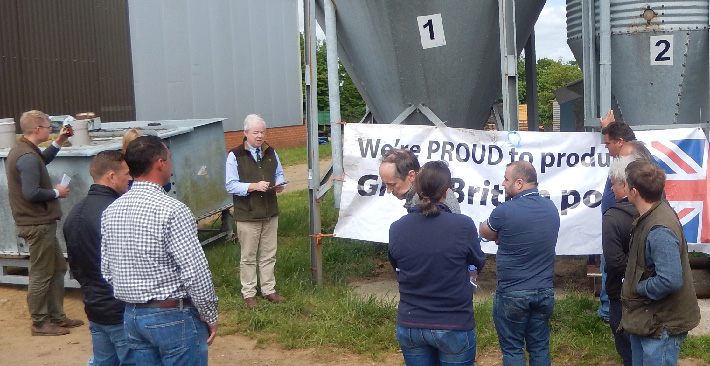The SPP continues its slow upward progress, putting on a further .68p and now stands at 153.75p but it is still lagging behind the EU mainland average price which is estimated at 159p/kg.
As far as next week is concerned, it looks very much a case of “stand on” with spot bacon traded in and around the 156- 160p range with more for lighter weights, but weekly contribution prices are expected to rise by another 2p in many cases within the 148-153p range.
Retail demand for pig meat in the UK remains selective and volumes have not been particularly good, although legs are selling quite well. However, a significant proportion of firmer pig prices is due to the “Chinese connection” rather than better domestic demand, at a time when more UK abattoirs are signing up China export certificates.
Cull sow prices continue to reflect generally level pig meat values on the EU mainland with most culls traded in the 108- 112p range and with a fall in the value of the pound, the euro traded slightly dearer and in exporter’s favour at 88.87p compared with 88.23p a week ago.
With not too many weeks to go before the dreaded “no deal” Brexit situation rears its ugly head masterminded by “Barking Boris”, there are significant concerns over the effect this could have on cull sow export values.
As far as the weaner market is concerned, the latest 7kg AHDB average dropped by £1.42 per head to £39.36 and with no further 30kg quotation which last week stood at £52.67, most weaners found homes with pig finishers benefitting from being able to purchase feed at viable levels and signs of a finished pig market in the run up towards Christmas. It’s what happens after that which sometimes hurts!
UK spot feed wheat traded on an ex farm basis a tad firmer with an overall average value of £127.01/t. Forward feed prices ended the week little changed with October feed wheat traded on the futures exchange at £137/t and September 2020 at £146/t. Barley for October delivery is worth £127/t; and for September 2020, £136/t. Hipro soya prices have also remained virtually unchanged with November-April ’20 soya quoted at £301/t and May-October 2020 marginally dearer at £306/t.
And finally, to avoid any complacency creeping into the pig market now that prices seem to be ahead of COP levels, there are worrying reports of growing interest in the production of non-meat based substitutes which are already becoming popular in the world market with some of the larger players including Tyson Foods and Smithfield looking at creating plant based alternatives for animal protein.
With concern about greenhouse gas emissions on a global basis (apart from President Trump) this could be another selling point for the non-meat manufacturers and perhaps the pork industry should be looking at a marketing counterattack underlining the benefits of lean, natural pork locally produced to high welfare standards.




